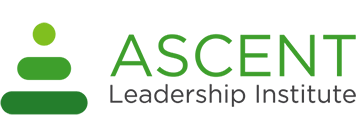You’re busy. Everyone in your company is busy. It seems like it’s getting harder and harder to get things done with all the various demands for your attention. There hardly seems to be enough time to return phone calls and answer emails. You’re always under a time crunch. And so is your entire team.
So, it probably seems counterintuitive to suggest that the solution may be found in carving out 20 minutes to an hour from your already packed daily schedule for meditation. Furthermore, you may think it would be crazy to introduce a program that would encourage every employee to do the same.
Nevertheless, that’s precisely what we’re suggesting, and here’s why.
What is Mindfulness Meditation?
Mindfulness meditation is an exercise that trains your mind to be present in the moment. And breath is a big part of it. So no equipment investment necessary.
The practice is quietly and purposefully turning your attention to your breath. It’s sounds simple, but it is not always easy. Our attention tends to wander away from the breath, distracted by emotions, thoughts, what happened in the past, what may happen in the future for example. Who just walked by our desk. This is normal.
The training is noticing when the attention wanders and bringing attention back to breath. Much like building a muscle, practice is required. Over time, it becomes easier to focus on what’s most important at the moment in our daily activities, and not be distracted by emotions or thoughts that are not important.
Through mindfulness meditation, you can become less reactive to a situation because it gives you the ability to acknowledge and accept it without judgment.
Mindfulness is Good for You
There are many benefits to mindfulness you should know about. Here are just a few of them.
Improved Focus and Attention
It’s hard to get anything done if you can’t focus on the task at hand. Nevertheless, distractions always seem to pull our focus away, making even simple jobs take far more time than they should. Mindfulness meditation will help you be aware when those distractions arise without allowing them to draw your attention away.
Mindfulness training also improves your ability to sustain your attention on a given subject for prolonged periods of time. If you have ever had your mind wander during a meeting only to realize that you have no idea what was said for the last 10 minutes, you will understand why this can be truly invaluable.
More Effective Communication
The emotional reaction to physical threats or danger is hard-wired into our brains as a survival instinct now manifests in the presence of mental threats. This makes us anxious or stressed. Complex contract negotiations or speaking to large groups can be perceived as mental threats hampering our communications skills.
Mindfulness meditation helps to develop the ability to stop when an emotional reaction arises and mitigate our emotional response to such situations. That pause allows us to express ideas more clearly and effectively.
Improved Emotional Intelligence
Emotional intelligence is the ability to recognize and manage one’s own emotions and those of others. It’s the cornerstone to better teamwork, change management, and flexibility. Mindfulness helps you be more aware of your emotions and the emotions of those around you at all times.
In research by Jack Zenger and Joseph Folkman, over 300,000 leaders, managers, and employees were asked what skills has the greatest impact on their success. Six out of eight skills were related to Emotional Intelligence.
Mindfulness is Good for Employees
There’s no doubt that employees are the lifeblood of any company. So, it stands to reason that employers want what is best for them. Companies that have implemented mindfulness programs in the workplace have seen reduced health-related absenteeism. Employees have reported feeling less stressed or overwhelmed, and they tend to be more cognitively agile and engaged.
According to Aetna, employees who have participated in at least one meditation class reported a 28% reduction in their stress levels and a 20% improvement in sleep quality.
Mindfulness is Good for the Bottom Line
It’s clear that a company will benefit greatly from a workforce that is more focused, healthier, more engaged, and more productive. But are these benefits quantifiable?
Companies with a mindfulness program in the workplace have seen extraordinary, measurable benefits. The reduced stress levels and improved health associated with the mindfulness program introduced at Aetna have contributed to a 7% or $6.3 million reduction in their health care costs. Additionally, the value of the improved productivity was estimated to be in the vicinity of $3,000 per employee, thanks to the mindfulness program.
Another stellar success story for the implementation of a mindfulness program is SAP. They report seeing a 200% return on the mindfulness investment. Following their significant commitment to the program, they sought to measure its impact. They noted improved employee engagement, remarking that a 1-point improvement in their overall employee engagement score represents a €50 to €60 million rise in their operating profit. Furthermore, they say that a 1% increase in their business health index adds another €85 to €95 million to their bottom line.
With those kinds of benefits, it’s not hard to see why such Fortune 500 companies like Google, General Mills, and Nike have also introduced mindfulness programs. To learn more about mindful leadership and how to incorporate it into your workplace, schedule a free 30-minute consultation with Ascent Leadership Institute today.
Learn more about Mindfulness practice and its benefits in our Guide to Mindful Leadership.
Ready to climb to your highest potential?
Sign up for a free 30-minute consultation and see which Ascent Leadership program is right for you and your organization.




